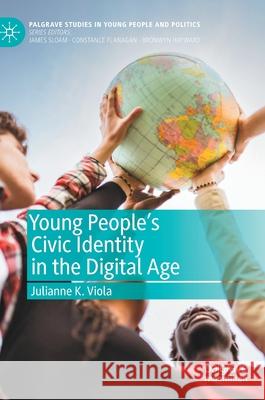Young People's Civic Identity in the Digital Age » książka
topmenu
Young People's Civic Identity in the Digital Age
ISBN-13: 9783030374044 / Angielski / Twarda / 2020 / 225 str.
Young People's Civic Identity in the Digital Age
ISBN-13: 9783030374044 / Angielski / Twarda / 2020 / 225 str.
cena 342,14
(netto: 325,85 VAT: 5%)
Najniższa cena z 30 dni: 327,68
(netto: 325,85 VAT: 5%)
Najniższa cena z 30 dni: 327,68
Termin realizacji zamówienia:
ok. 16-18 dni roboczych.
ok. 16-18 dni roboczych.
Darmowa dostawa!
Kategorie BISAC:
Wydawca:
Palgrave MacMillan
Seria wydawnicza:
Język:
Angielski
ISBN-13:
9783030374044
Rok wydania:
2020
Wydanie:
2020
Numer serii:
000814711
Ilość stron:
225
Waga:
0.55 kg
Wymiary:
21.01 x 14.81 x 2.06
Oprawa:
Twarda
Wolumenów:
01
Dodatkowe informacje:
Wydanie ilustrowane











